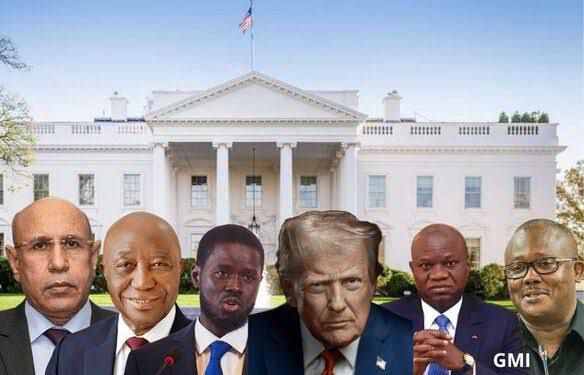

From July 9 to 11, the White House will host an unexpected summit bringing together five West African heads of state from Senegal, Mauritania, Liberia, Gabon, and Guinea-Bissau for what is officially framed as a strategic conversation on economic opportunities and regional stability. The initiative, announced just days ago, precedes a broader U.S.-Africa Summit set for September in New York, raising questions about Washington’s sense of urgency and its priorities.
The timing of this mini-summit is particularly notable. Only last week, President Donald J. Trump personally oversaw the signing of a ceasefire agreement between the Democratic Republic of Congo and Rwanda, marking what many in Washington hailed as a breakthrough in regional diplomacy. But behind the applause, informed observers point to less publicized aspects of the deal including reported provisions that grant the United States preferential access to a portion of the DRC’s mineral wealth. An outcome that may help explain the sudden flurry of U.S. diplomatic activity on the continent.
Now, attention seems to be shifting toward West Africa a region rich in critical minerals and increasingly central to the geopolitical tug-of-war over global supply chains. The July meeting is expected to touch on issues ranging from mining cooperation to counterterrorism. On the surface, the agenda appears conventional. But the choice of participants and the timing suggest that Washington may be laying groundwork for deeper, possibly more exclusive arrangements.
This renewed interest also comes at a time when many African governments are actively asserting their sovereignty, particularly when it comes to control over natural resources. The language of partnerships is still used, but beneath it, the dynamic is changing. Across the continent, voices are rising against extractive models that leave little value behind. It is in this evolving context that the U.S. is accelerating its engagements selecting partners, defining terms, and proposing “win-win” frameworks that, in practice, have often tilted westward.
Some observers also note the irony that this outreach is happening shortly after the Trump administration reinstated tighter visa restrictions on several African countries. While ordinary citizens face increased hurdles entering the U.S., their presidents are now being flown in to discuss cooperation. It’s a contrast that hasn’t gone unnoticed in diplomatic circles.
The official narrative remains one of partnership and mutual interest. Yet, with another major summit just around the corner, one might wonder why the White House is choosing to host this select group of leaders now. Is it a preview, a test run or something else entirely?
Whatever the answer, one thing is clear: the renewed American focus on Africa is no coincidence. And while this week’s summit may appear modest in scale, its outcomes could shape the contours of U.S.-Africa relations for years to come especially if access to strategic resources remains high on the agenda.
By Ermias Tilahun | Correspondent




